Iranian Regime Propagandist Barred From Leaving Saudi Arabia
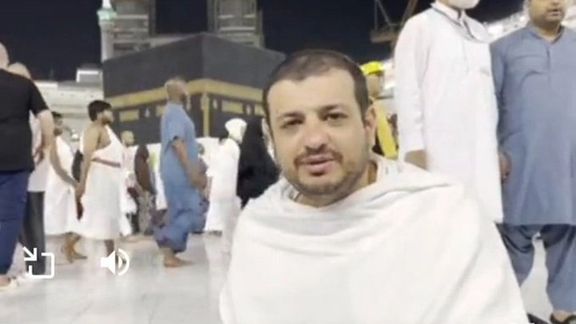
Saudi Arabia has barred Iranian regime propagandist Ali-Akbar Raefipour from leaving the country as he tried to return to Iran after Hajj pilgrimage.

Saudi Arabia has barred Iranian regime propagandist Ali-Akbar Raefipour from leaving the country as he tried to return to Iran after Hajj pilgrimage.
Iran’s Foreign Ministry Spokesman Nasser Kanaani confirmed the report on Monday, adding that he was not arrested, and Iran's embassy is trying to settle the problem.
Unconfirmed reports say Raefipour was arrested at Jeddah airport because of using a fake passport; however, Masaf Institute, founded and directed by Raefipour, denied all "rumors" about the reason for the travel ban, saying he had entered Saudi Arabia legally, and is currently staying at Iran's consulate in Jeddah.
It also claimed that Raefipour was prevented from leaving Jeddah “without any explanations.”
Hardliner Raefipour who promotes apocalyptic views based on Shiite eschatology and the coming of promised savior Mahdi is known for his conspiracy theories.
He was among the hardliners who launched a propaganda campaign to convince the public that the Coronavirus crisis was caused by a specific strain of the virus used by the United States against Iran as a "bioterror attack".
Raefipour has consistently supported the bloody crackdown on protests in Iran which began with the death in custody of Mahsa Amini in mid-September, inciting violence and hatred online.
In late 2022, the IRGC-affiliated media activist's Twitter account was blocked after he threatened anti-government protesters on the social media platform.
Raefipour wrote in a tweet on December 6 that "If you want to lose your life, join the street protests, especially if you have a beautiful face".
He further claimed that the calls for nationwide protests and strikes were aimed at “creating deaths”.
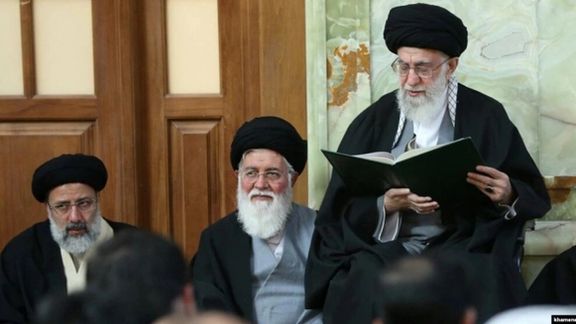
A hardline whistle-blower has released documents about corruption within one of Iran's biggest charities controlled by a Supreme Leader aide, Ahmad Alamolhoda.
Ayatollah Alamolhoda -- the Friday Imam of Mashhad, Supreme Leader Ali Khamenei's representative in the city and the father-in-law of President Ebrahim Raisi -- has been pocketing large sums of money from the Goharshad endowment without any real responsibility or duties.
As part of the decree that gives the charitable foundation to Alamolhoda, he can have 10 percent of its total income as his personal salary, while another 10 percent provides the salaries of all the other staff who work there.
The revelations were made by Vahid Ashtari, known for revealing corruption among Iran’s senior officials. He published a thread of tweets on Monday with details about one of the biggest financial endowments of the country, Goharshad, ironically meaning Happy Jewel in English, which was handed over to senior firebrand cleric Alamolhoda six years ago.
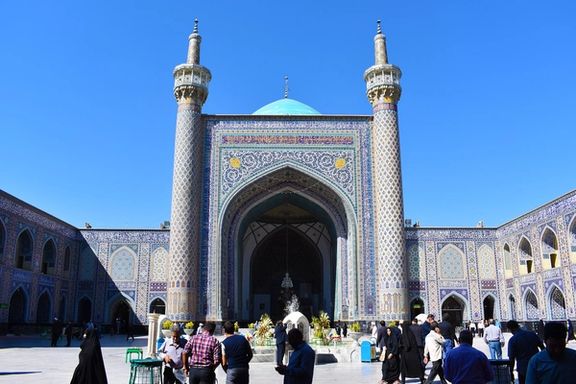
The Goharshad endowment has more than 1,000 hectares of land in Mashhad and more than 5,700 lots of land and real estates in the city of Chenaran, about 45 km (about 27.96 mi) west of the city. However, 5,700 is only the number of the lots that have separate documents while the real number is nearly 26,000 (25,825) pieces of property, including agricultural and animal farms.
In Iran, such endowments are like holding companies with several cultural, educational and healthcare institutes as well as other affiliated companies working in horticulture and construction. A report by IRNA in 2019, cited a deputy of the Endowment Organization of Khorasan Razavi province as saying that Goharshad is the most profitable charitable organization in the province.
Granting the guardianship of such a colossal entity to Alamolhoda was controversial in the first place, but new details have caused further outrage among Iranians.
Not surprisingly, Alamolhoda has done what most of the influential regime insiders do with such opportunities. He asked the managerial board of the foundation to give him the 10-percent cut but he relinquished all decision-making and responsibilities to the province’s Endowment Organization.
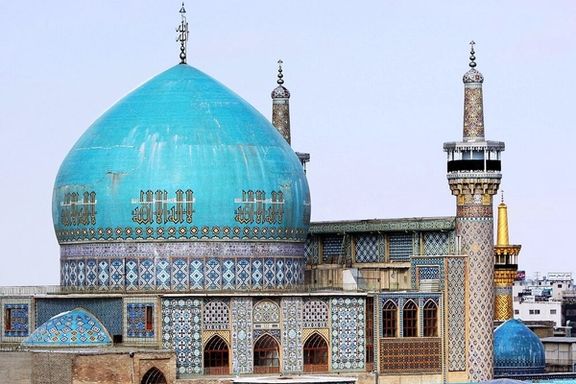
Ashtari is a member of Edalat Khahan (Justice Seekers), a political group of mainly of young conservatives and university students who are loyal to Supreme Leader Ali Khamenei and are also close to former nuclear negotiator Saeed Jalili who ran against Raisi. In April 2022, his revelations sparked the Layette-gate scandal that led to calls for the resignation of Speaker Mohammad-Bagher Ghalibaf and resurfacing of other alleged corruption cases against his family.
In June, Ashtari revealed in a series of tweets that a 150-hectare piece of land endowed by a local family in Qazvin including a farm with 1,000 cattle has been rented out at a monthly rent of 10m rials (around $20 at current exchange rates) to Mona Chaychian, the daughter-in-law of the head of the State Endowment Organization Mehdi Khamoushi, another Khamenei appointee.
Ashtari who dubbed the case as “Daughter-in-Law Favoritism in Endowment Organization” pointed out in his tweets that young couples are unable to rent a basement in the outskirts of the city of Qazvin with the same amount of money as a point of comparison. “The Endowments [Organization has officially turned into the back yard of corruption [-mongers],” he wrote.
The Organization has confirmed the deal but claimed that Khamoushi was not involved in it and threatened to sue the whistle-blower.
In the case of the parliament speaker, Ashtari revealed that Ghalibaf’s wife, daughter and son-in-law had returned from Turkey with massive extra luggage including a baby bed and stroller that formed part of the layette for his yet unborn grandchild. All this as Iranians have to pay hefty prices for imported goods and tens of million are now considered to have sunk into poverty.
Critics accused Ghalibaf of hypocrisy for his admonishing others for luxury and telling Iranians they should support domestically made products.
Ashtari has been sentenced to two years in prison and banned from media and social media activity for his role in what has been dubbed “Layette Gate”. It is believed he has appealed the sentence.
According to the annual list released by Transparency International in January, Iran ranks 150 out of 180 countries in the 2021 Corruption Perceptions Index (CPI), one stop lower than the previous year.
The regime authorities routinely criticize corruption in the country, with Khamenei having issued an anti-corruption decree, demanding the heads of the three branches of government not slacken in efforts against graft. All this while it is Khamenei's own inner circle which has become most notorious for its own corruption.
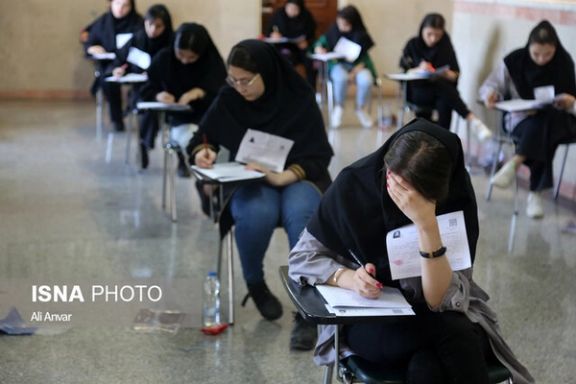
Students from the wealthiest families have a much greater chance of admission to top universities in Iran, as many blame corruption by the entrance exam ‘mafia’.
In a program aired by the state television Sunday, Mansour Kabkanian, a member of the Supreme Council of the Cultural Revolution, said 48 percent of the hugely sought after 3,000 seats, such as those in medical and engineering schools, are taken by students hailing from the top income percentile families while students from the bottom income brackets only manage to make it to 0.2 percent of top majors.
Only 1.3 of applicants from the bottom three percentiles make it to medical and dentistry schools against 86 percent from the top three, he said, adding that in some engineering fields, such as electrical engineering at Sharif University of Technology, the three bottom percentiles have no chance at all but those from the top three percentiles make up 87 percent of all students admitted.
Many Iranians believe that the standardized university entrance exams, known as Concours, which is usually held at a nationwide scale in summer every year, is responsible for such a huge gap in admission of students from the wealthy and underprivileged families.
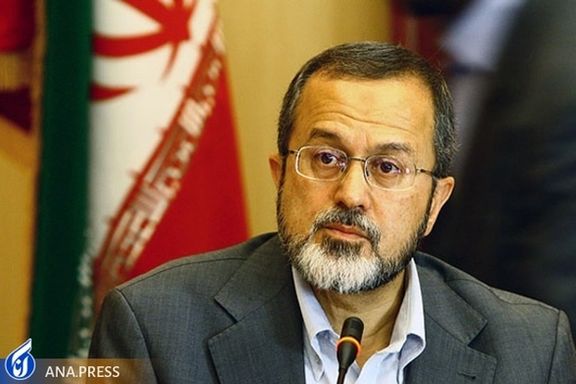
They argue that Concours only allows for those with money who can afford not only top private schools, but also preparatory classes and private lessons, expert advice on making the best choices, and even corrupt practices such as purchasing the test questions and their correct answers at astronomical prices.
Those profiting from the lucrative business of running Concours classes and publication of expensive study material have for years used their influence and money to prevent the entrance exam system being replaced by better and fairer methods of student admission to universities, the media have been saying for years.
The Iranian media have dubbed the allegedly profiteering Concours businesses as ‘the Concours Mafia’.
“The Concours mafia has been corrupting the exams for years. In public schools they teach you that 2+2 makes four while in the Concours exam they require you to calculate the mass of the sun in your head,” a critic tweeted.
“The mafia establishes the [exam preparatory] school so that you have to fill their pockets to succeed. Those who create the test questions make them arbitrarily [hard] in order to sell the key to test questions before the exam [to make a profit],” he added.
The term ‘mafia’ is often used by Iranian media to refer to influential groups that ensure their own profits through bribing officials and lawmakers. Critics of the automaking industry, for instance, have said for years that a “mafia-like” influential group is behind a ban on car imports to eliminate competition to Iran's inefficient auto industry where their interests lie.
The head of the higher education ministry’s evaluation organization, Abdolrasoul Pourabbas, claimed earlier this year that corruption in holding Concours has decreased this year as a result of using new methods and devices to uncover cheating during the exams. Last year he had sworn on camera that allegations of corruption were false.
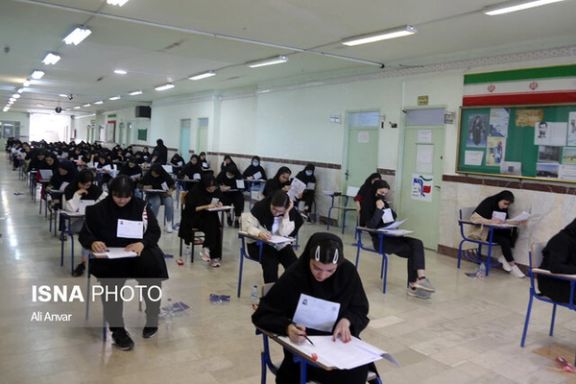
Pourabbas said that “some ringleaders of fraud networks” were arrested in several provinces and added that there are plans to end the Concours. Such statements have been made by various officials for around two decades.
Nearly 1.2 million applicants participated in the exams this year held July 6 and 7 across the country.
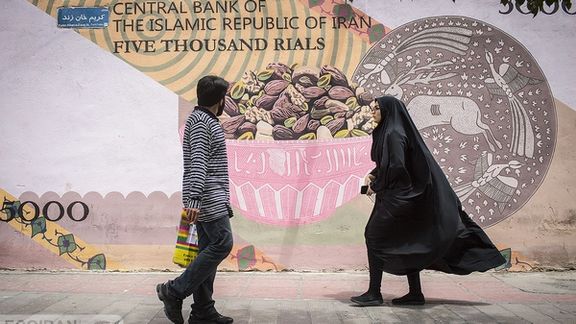
Iran’s Parliament Research Center says the limbo in the regime’s economic policies will lead to further poverty and inflation in the country.
In its latest report released this week, the research arm of the Iranian parliament said that if the economic trends of the last decade continue, no policies in the country's seventh national development plan would help curb the growing poverty.
“In order to realize high growth and improve productivity, policymakers should stop price suppression policies to control inflation and solve the inflation problem in a more fundamental way," read the report. The regime tends to put a cap on prices of certain goods and services, but there is little enforcement.
According to the report by the parliament’s research center, which had said late in May that the population below the absolute poverty line in the country increased to 30.4% in 2021, the household income has not improved in the past decade and is set to become worse. Economist Farshad Momeni said a few days ago that the population of the poor has doubled in less than three years since in comparison with the average poverty in the 2010s. At that same time, the regime set a target of 116-percent growth until 2020 but the economy only grew about nine percent.
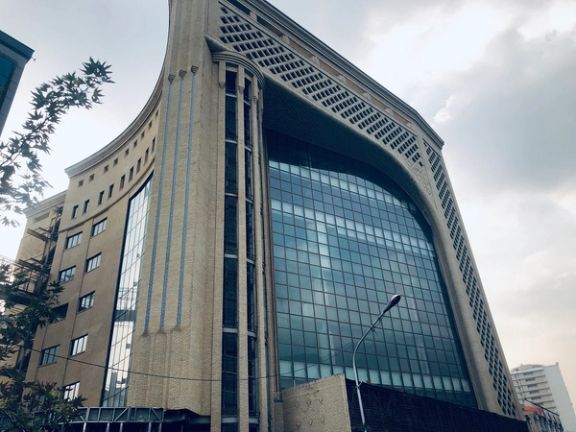
Since the 1940s Iran has launched 11 plans to build infrastructure, establish key industries, expand public services and education. Five plans were launched under the monarchy until 1979, and six during the Islamic Republic. Nevertheless, Iran is still considered a developing country, due to anemic growth in the past 44 years.
Annual growth since 1979 has barely averaged 2.5 percent, and it past decade growth has been zero, impacted by international and US sanctions related to Iran's nuclear program.
According to a report published by ILNA in January, one-third of the country’s population is now living in extreme poverty, after the number almost doubled in one year from 2020 to 2021. However, it is believed that the number could in reality be far higher. According to official figures released by the interior ministry, around 60 percent of the 84 million Iranians live under the relative poverty line of whom between 20 to 30 million live in "absolute poverty".
There have been several factors hindering Iran's economic development dating back decades. The revolutionary chaos of the early 1980s, immediately followed by the eight-year Iran-Iraq war that caused hundreds of thousands of casualties, derailed Iran from its modernization trajectory. The Islamic government, built on an anti-Western ideology engaged in hostage taking and supporting militant groups from its very inception, has left the country isolated.
The inefficiency of successive clerical governments during the past four decades, and many years of international sanctions that have crippled the country's economy, were acknowledged in the report to have contributed as adverse factors against growth.
The parliament’s research center also admitted that “foreign exchange resources have become the Achilles heel of Iran's economy, and the realization of sustainable growth depends on the provision of new foreign exchange resources for the country.”
Crushed by numerous rounds of sanctions by the US, EU, UK, and several others, the Islamic Republic faces crippling obstacles to cash its oil and gas revenues in foreign currencies, leading to tens of billions of dollars of assets frozen in foreign banks.
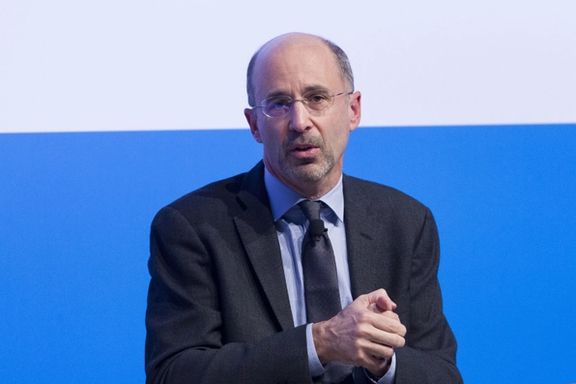
The US State Department said Monday that they will be engaging with the office of House Foreign Affairs Committee Chairman regarding his letter about US Iran envoy being under investigation.
Iran International first reported June 29 that special envoy Rob Malley has been absent for a considerable time, his security clearance has been suspended and he is under investigation related to his handling of classified documents. Later it was revealed that he is on unpaid leave and the Federal Bureau of Investigation (FBI) is involved in the investigation.
Following the initial reports committee chairman Rep. Michael McCaul (R-Tx) wrote a letter to Secretary of State Antony Blinken and demanded answers as to why the State Department had not informed Congress directly and clarification on Malley’s case.
State Department spokesperson Matthew Miller in his press briefing confirmed the receipt of McCaul’s letter and said, “We take our oversight obligation extremely seriously, we obviously got the letter from the Chairman, and we’ve been reviewing it and we will be engaging with his office on the matter.”
McCaul in his letter set a deadline of Tuesday, July 11 at 5:00 pm for a response from the State Department.
“These reports raise serious concerns both regarding Malley’s conduct and whether the State Department misled Congress and the American public,” McCaul wrote to Secretary of State Antony Blinken.
Senator Bill Hagerty (R-TN) also tweeted on the matter June 30, raising a series of questions. “When did the investigation that led to the suspension of Malley’s clearance begin?”, asked Sen Hagerty, and added, “When were Secretary of State Antony Blinken and President Joe Biden informed of it?”
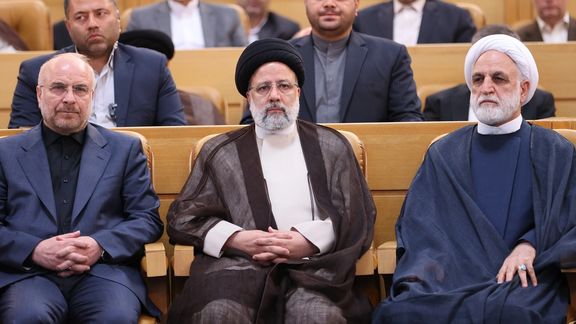
An increasing number of Iranian conservatives have joined reformist clerics and politicians, openly criticizing President Ebrahim Raisi and his government.
It appears that last year's protests in Iran have even shaken Supreme Leader Ali Khamenei's authority and some public figures inside Iran are less reluctant to hold him responsible for the country's problems.
Last week, a conservative member of parliament referred to Iran's leading clerics as "2-rial mullahs," using the smallest denomination of Iran's currency as a metaphor. Although some hardliners objected to the remark, the MP faced no consequences due to his affiliation with the country's intelligence community.
Meanwhile, two prominent Western-based Iranian political analysts, Mehdi Khalaji and Mehdi Mahdavi Azad said at a talk show on Iran International TV on Saturday that clerics including Khamenei have been losing their authority during the past months and the military and intelligence organizations are likely to replace Khamenei or to determine a weak successor to him once he is dead.
Rasoul Montajebnia, the Secretary General of reformist Jomhouriat Party said in an interview with Rouydad24 on Sunday, "The group of politicians who are in power in Iran will continue to defend the current situation even if it turns ten times worse than what we witness now." Motajebnia reiterated that the all-conservative government has dealt a hard blow to Iran's national interests.
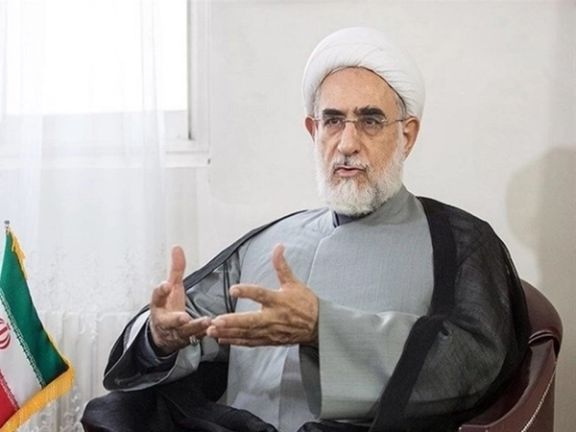
He said as a result of the performance by officials in recent years, the people have come to believe they no longer can trust them and what they say, and this is rather worrying.
Montajebnia said, under the circumstances, a majority of the people either oppose the government, or protest its behavior, or try to be indifferent. He added that there are two major elections in March 2024 and the people need to make sure that these are competitive elections in which they can choose whoever they want for parliament and the Assembly of Experts.
Montajebnia further highlighted that successive governments over the past two decades have disappointed the people. Financial corruption cases and restrictions on people's power to choose their representatives have eroded trust in officials and rendered elections meaningless. Consequently, the regime's legitimacy is declining, and fewer people continue to support the government.
In another development, pointing out the division between the people and the government, the former chief of the Iranian parliament's national security and foreign policy committee Heshmatollah Falahatpisheh told reporters in Tehran that the fact ordinary young people are sent to defend the borders where many conscripts are killed in clashes with smugglers and opponents, while children of well-connected families often are exempt from military service, shows a high degree of discrimination.
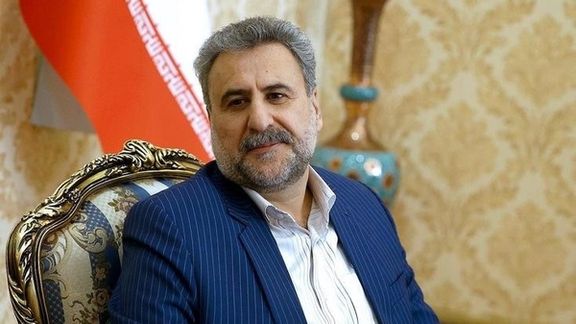
Defending the government, hardline conservative politician and a member of the Islamic Coalition Party, Ahmad Karimi-Esfahani promised that "The government will gradually but slowly realize its potentials and the country's problems will be solved."
He then resorted to an outdated intimidating rhetoric and warned Iranians not to play into the hands of the enemies by criticizing the government. He added that the government hopes that prices will come down, while annual inflation is hovering between 70-120 percent, depending on who issues estimates.
Karimi-Esfahani added: "It is unfair to criticize the Raisi administration which is heir to a government that had made too many mistakes." He claimed that the Raisi administration has had major achievements that we cannot ignore.
His remarks contradict a chorus of harsh criticisms of the government from the early months of Raisi’s presidency.